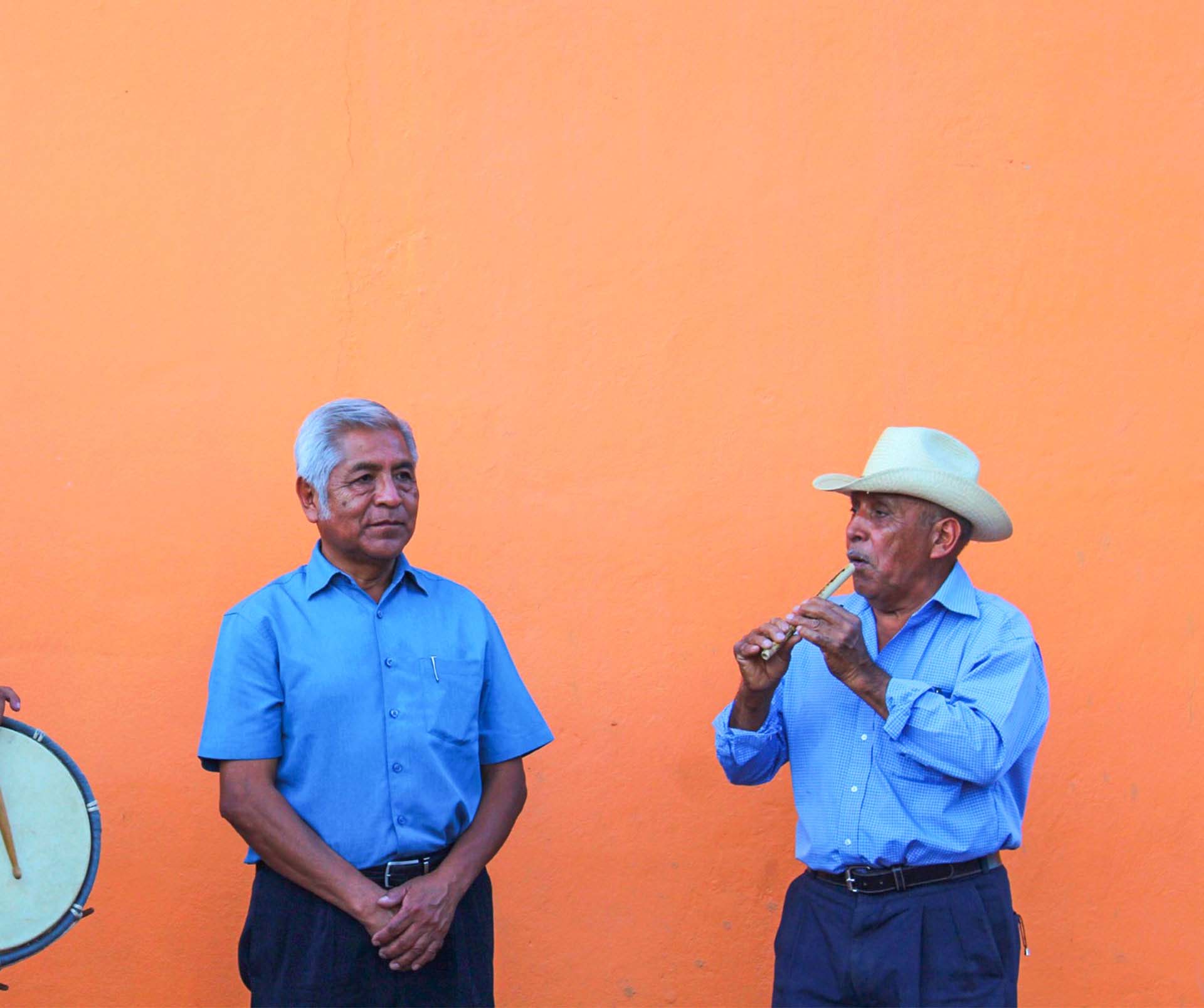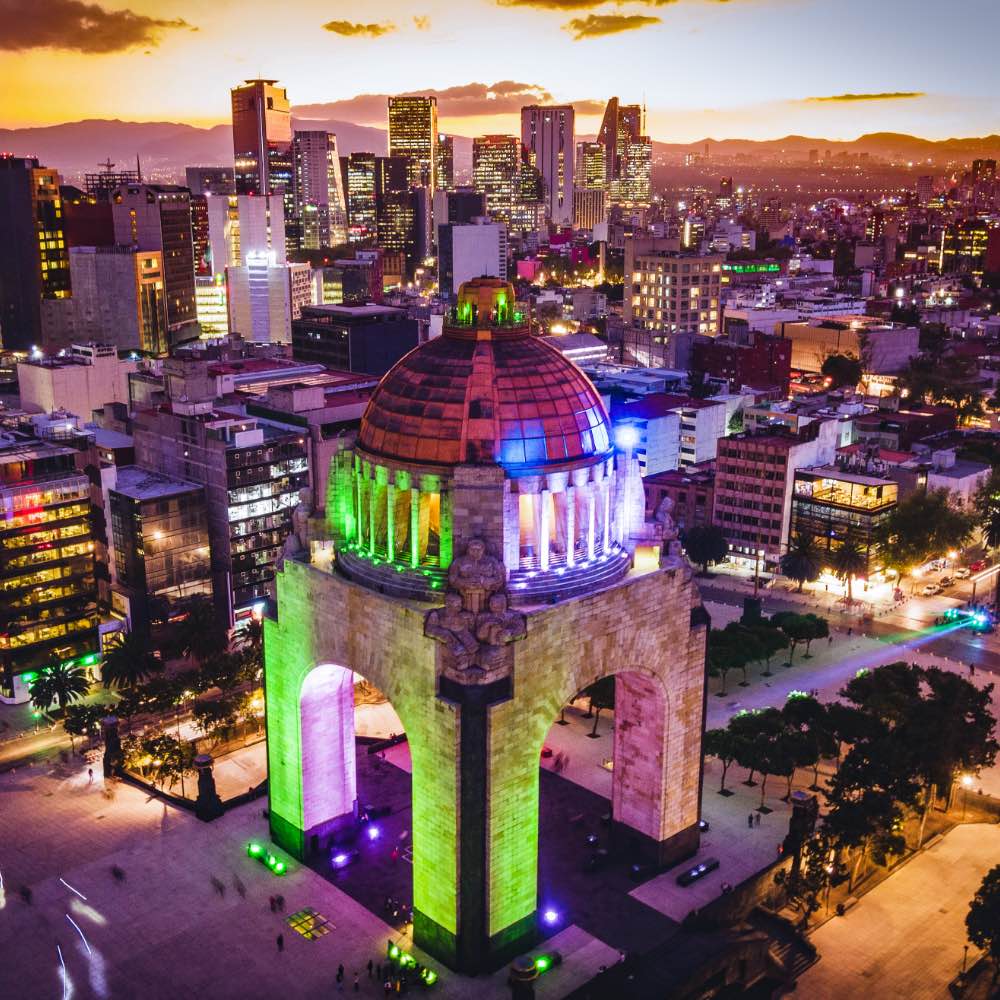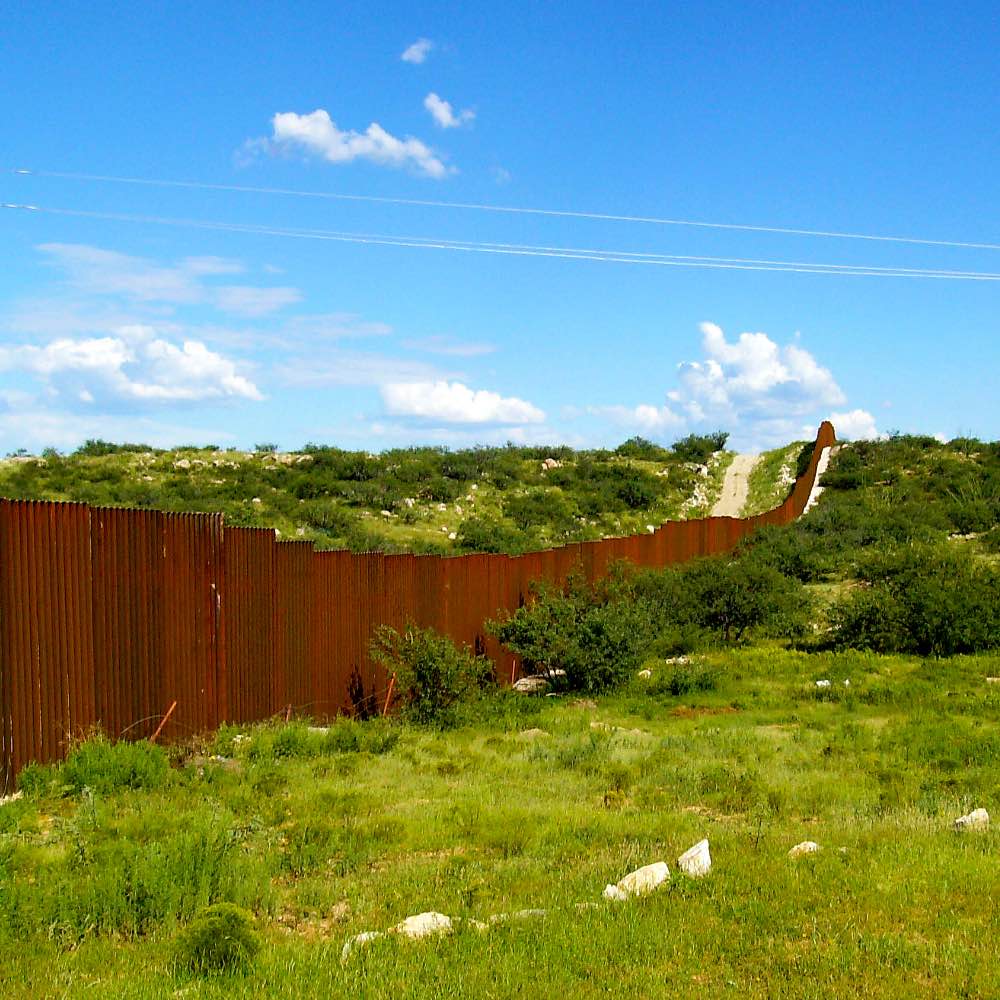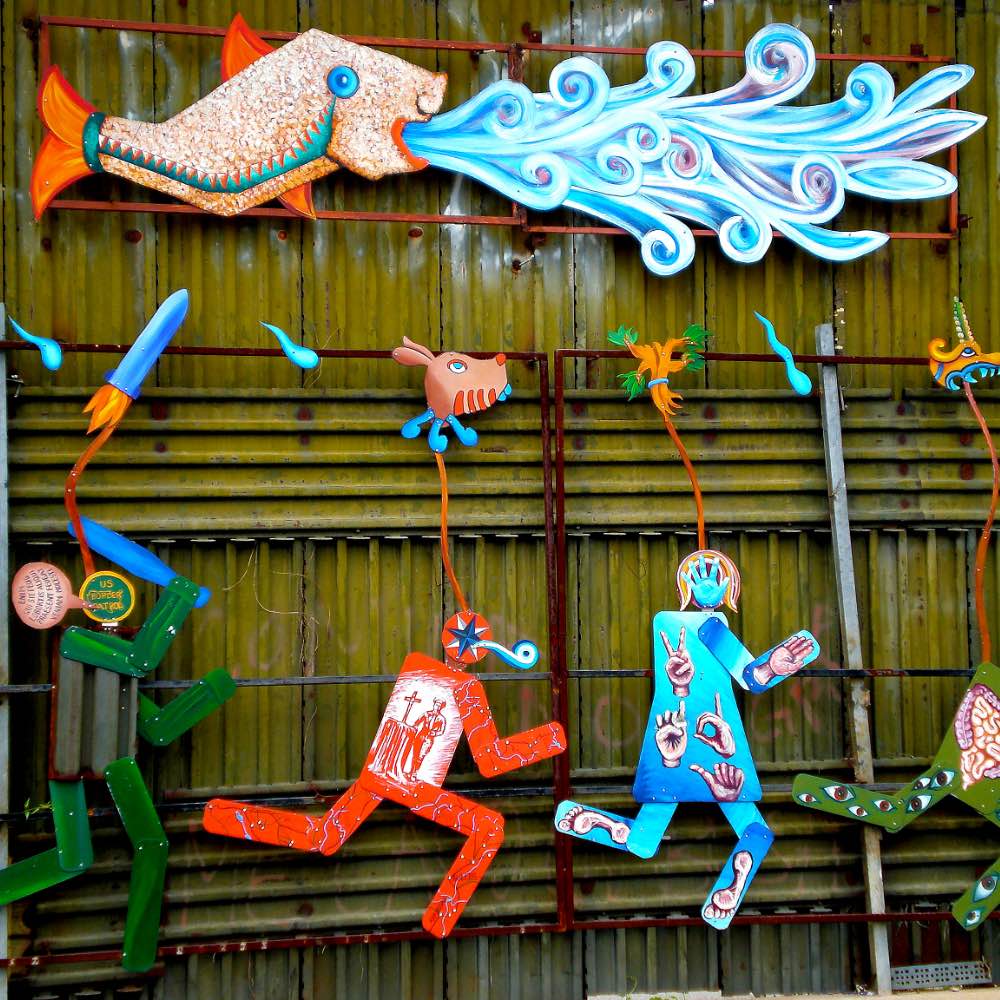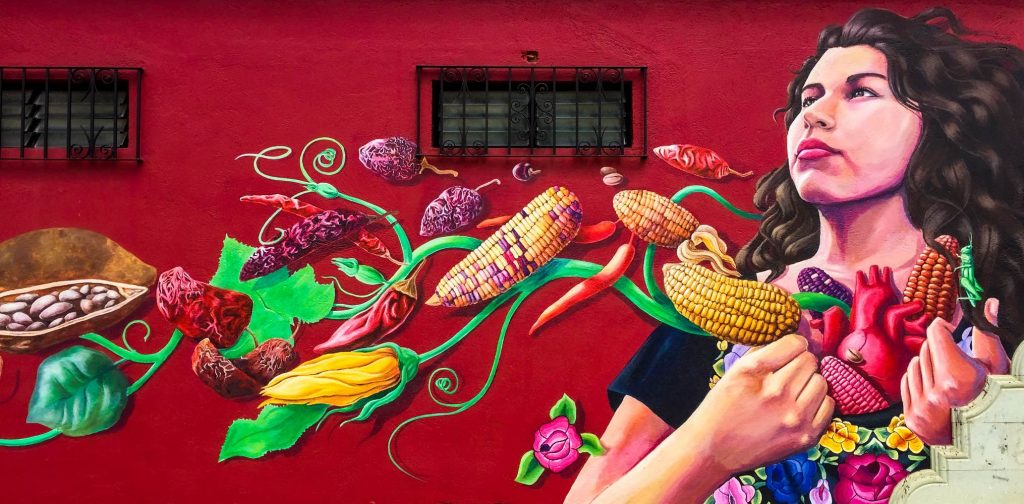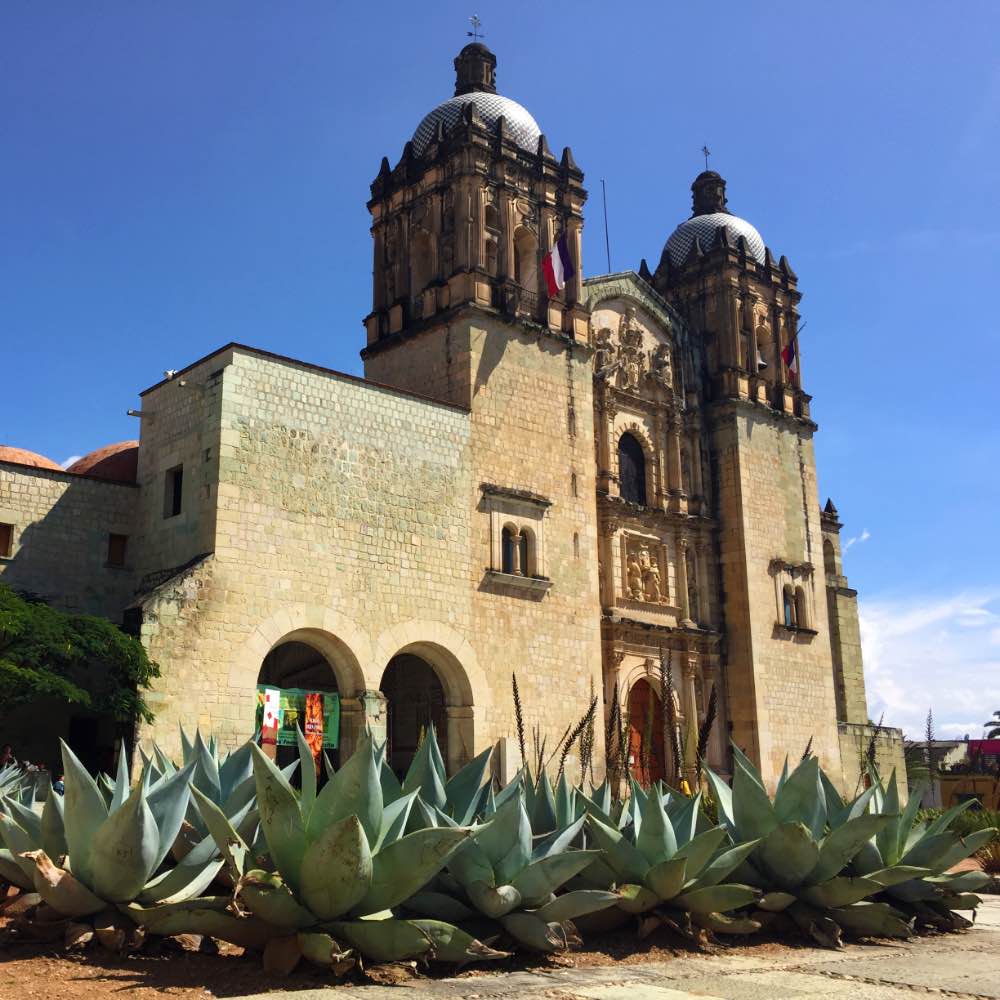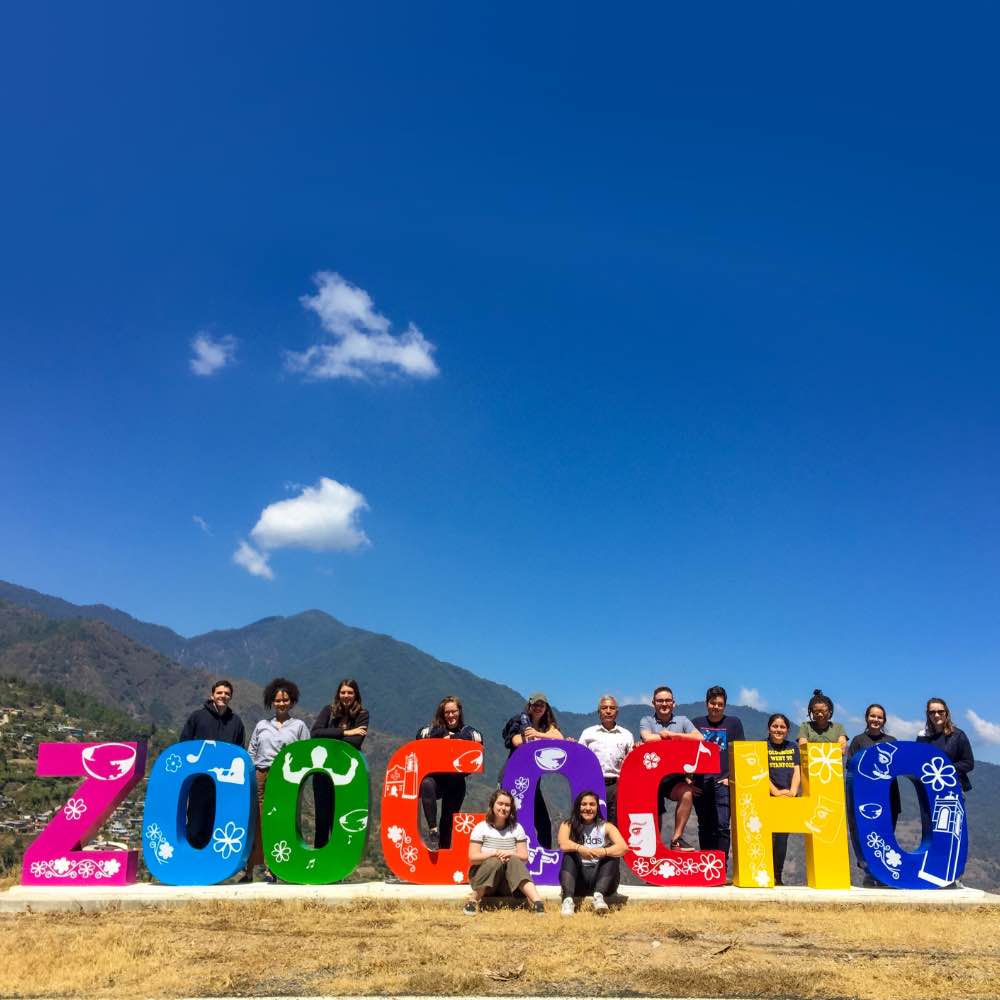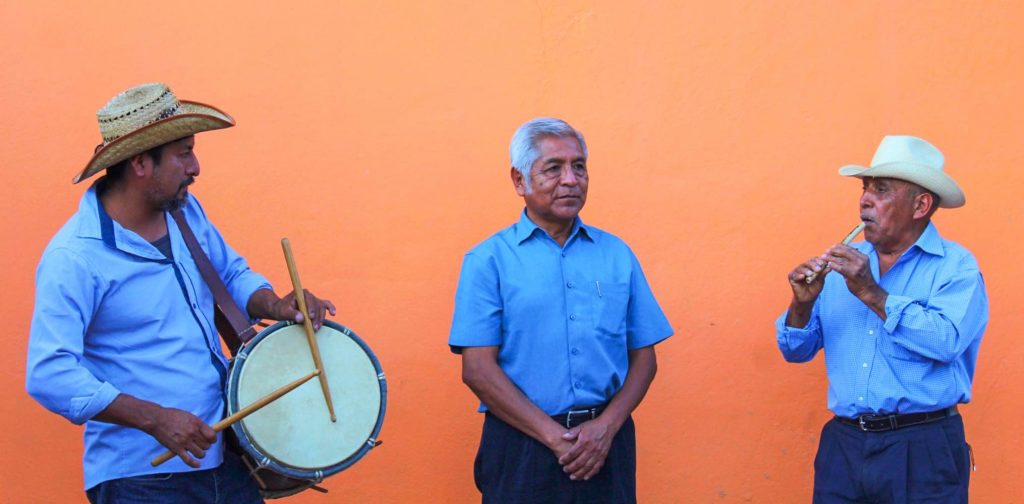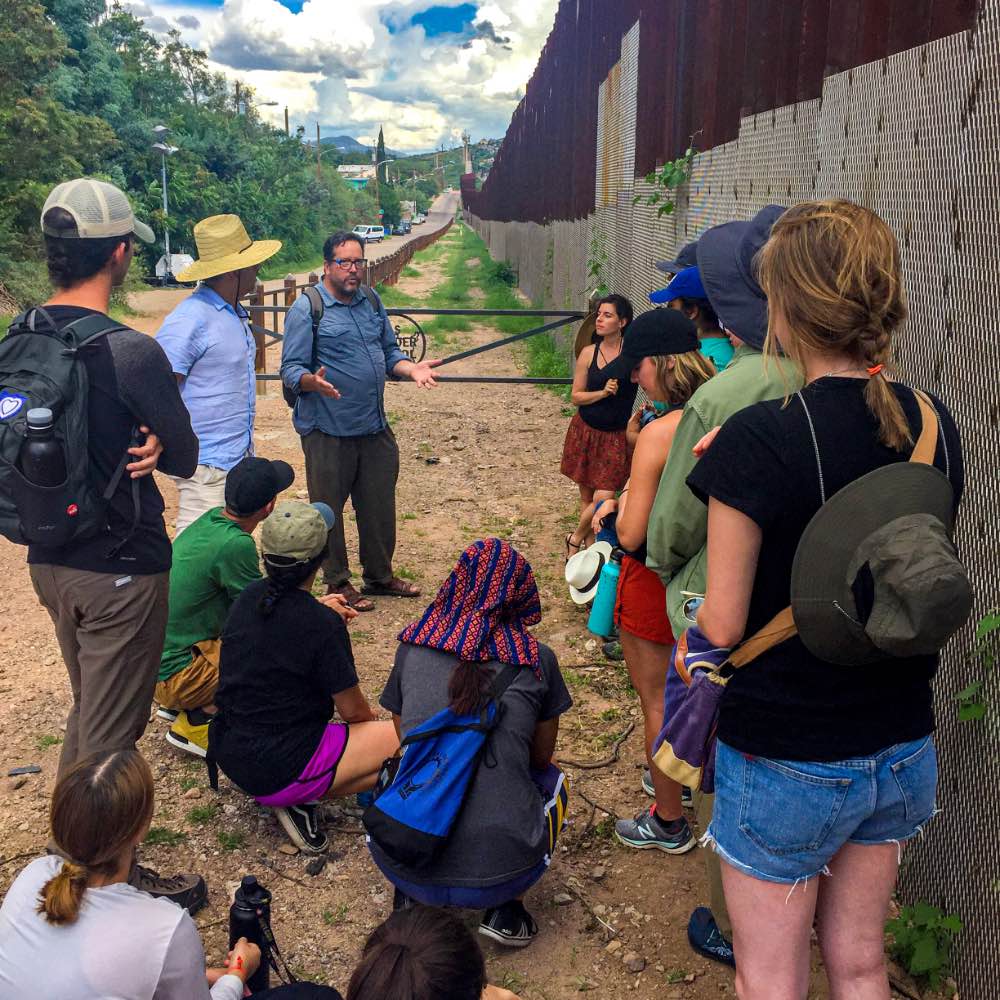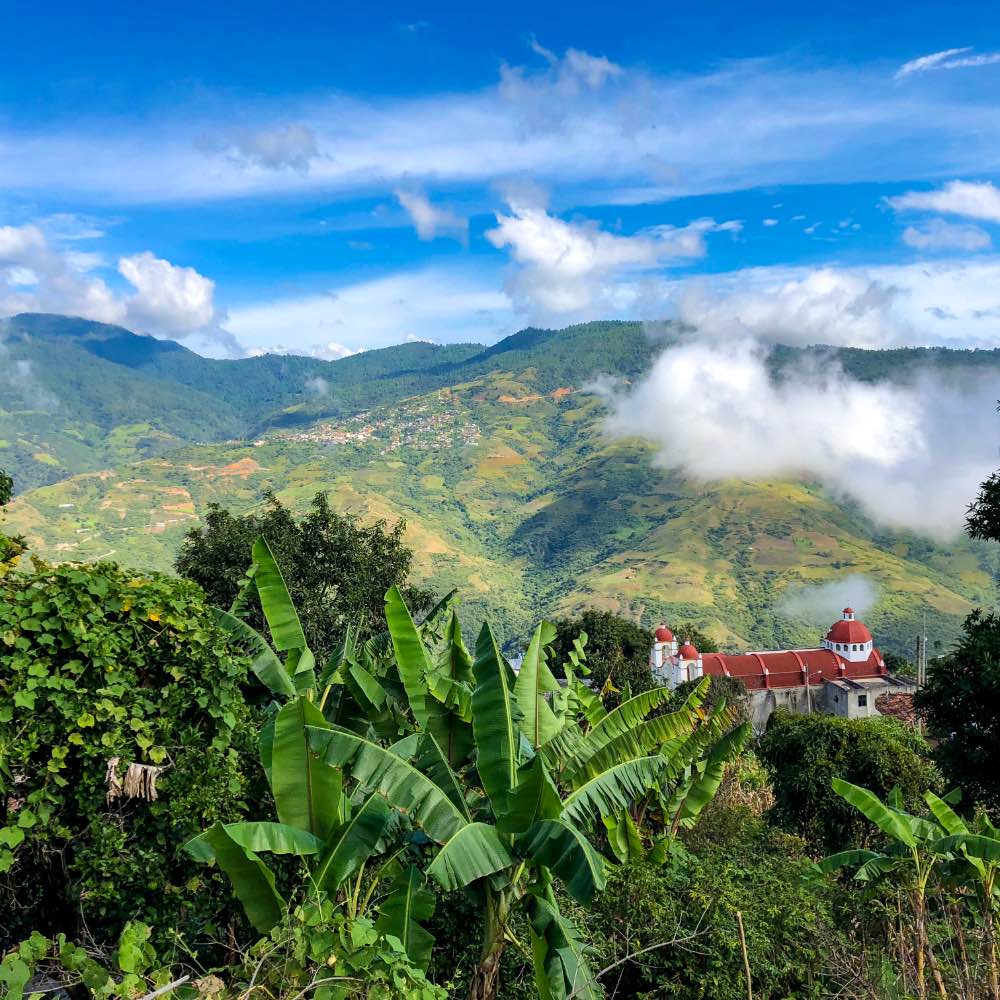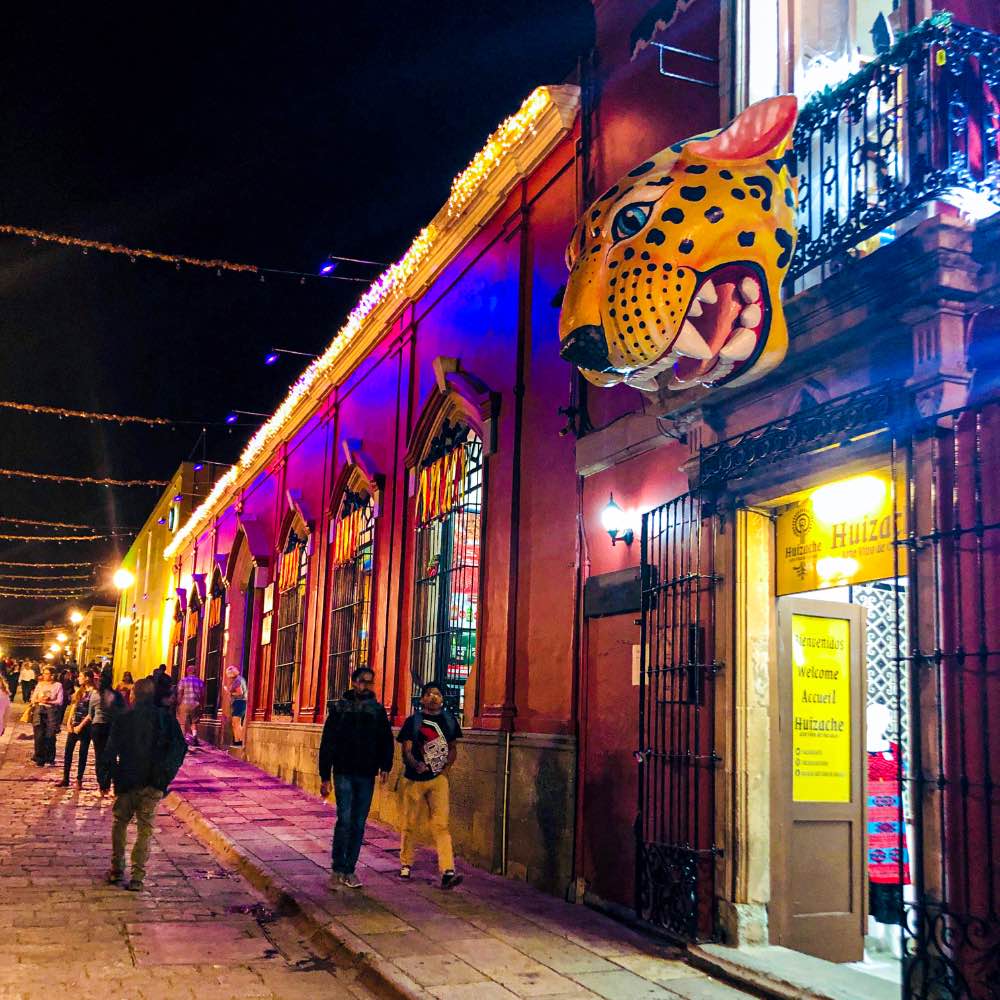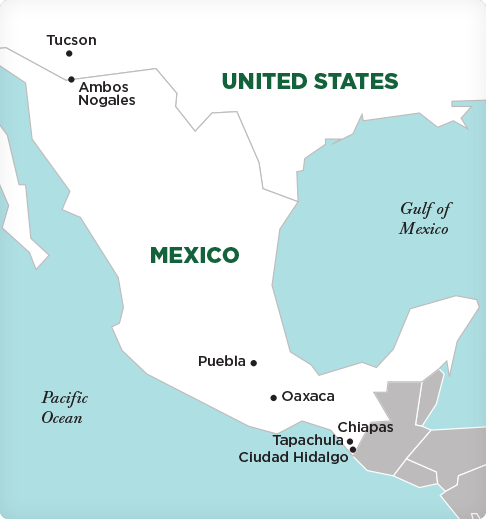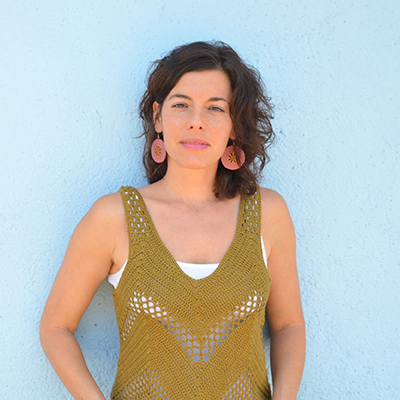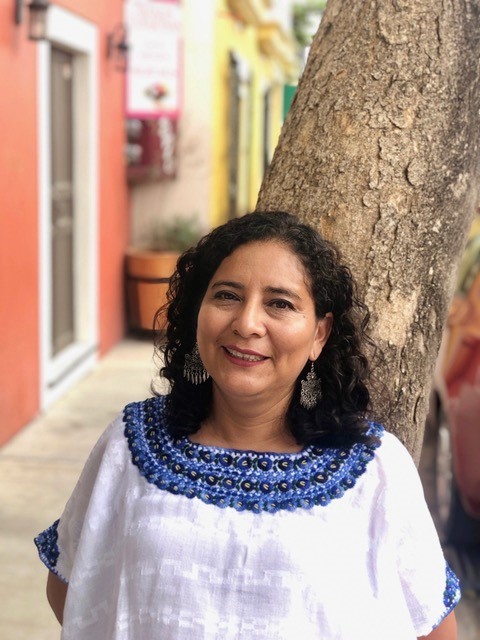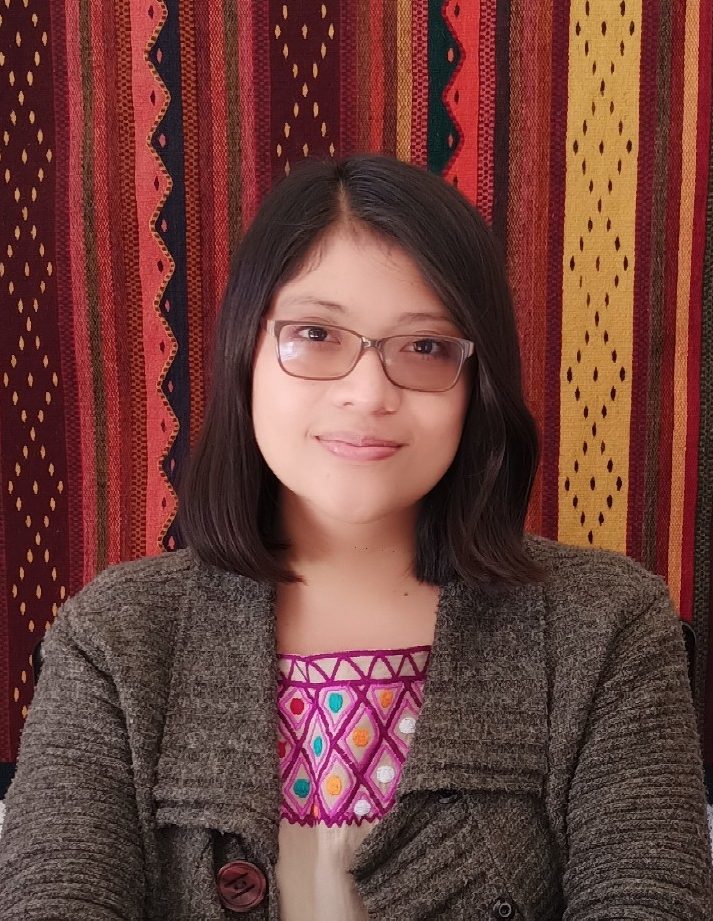Overview
Why study migration in Mexico?
Tensions related to migration through or from Mexico are high and policies change frequently. You’ll start your program in Tucson, Arizona, near a major point of entry into the United States, to learn what undocumented migrants face once on U.S. soil. Then, you will travel to Oaxaca, Mexico, where you will discover how international economics, labor shortages, war, and immigration policy affect migration patterns.
You will also visit Chiapas on the southern Mexican border with Guatemala to hear directly from Central American migrants about challenges they face and see how efforts to restrict human mobility can generate greater levels of vulnerability, including serious human rights abuses. In addition, you’ll learn about transnational communities and the creative ways they support families.
Throughout the program, you will develop the Spanish language skills to discuss and research human rights and social movements issues through classroom learning, cultural immersion, homestays, and excursions.
Highlights
- Live in Oaxaca, Mexico, a point of origin for many migrants going to the U.S.
- Understand the factors that lead to undocumented migration.
- Get a firsthand look at Mexico’s northern and southern borders.
- See how migration affects Central Americans and their communities.
Prerequisites
Three recent semesters of college-level Spanish or equivalent and the ability to follow coursework in Spanish, as assessed by SIT.


